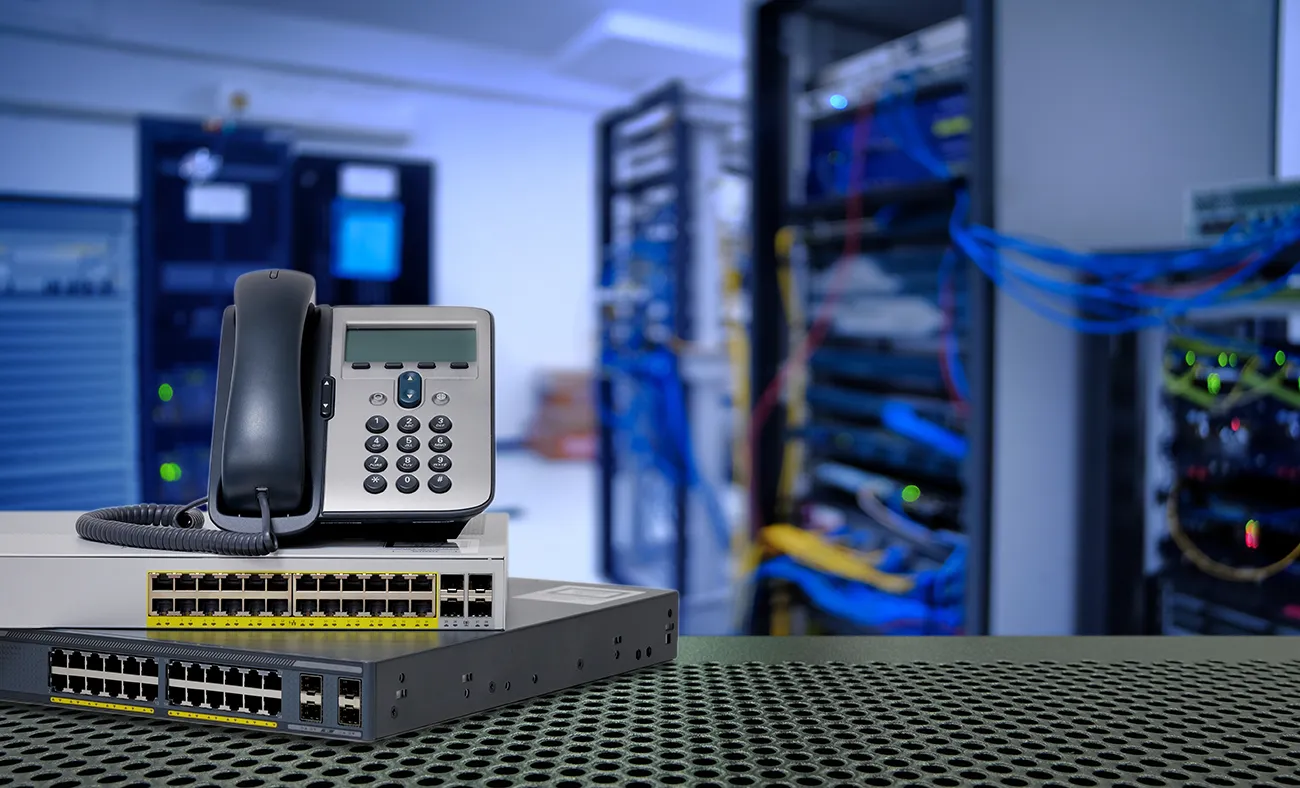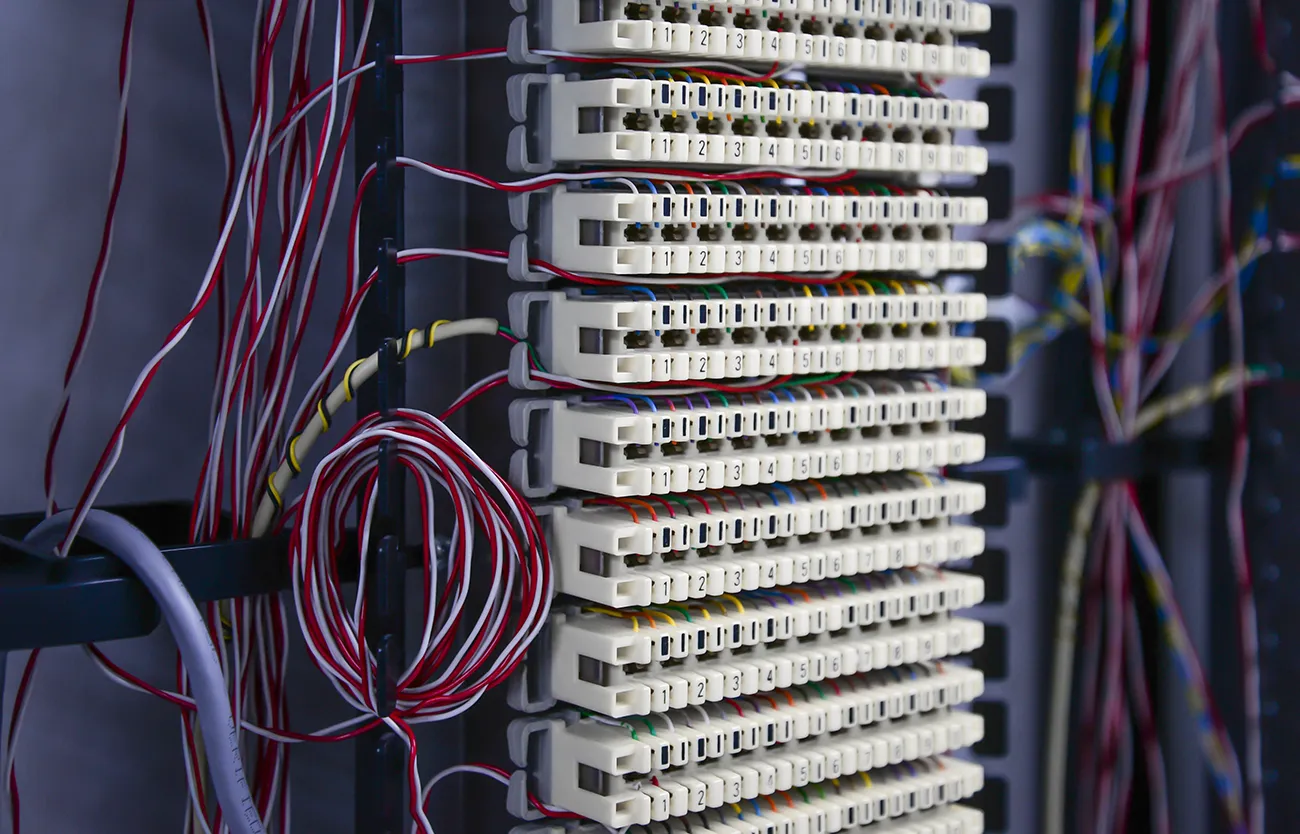Voice over Internet Protocol, or VoIP, plays a crucial role in our modern communication landscape. They allow us to make and receive calls over the internet, reducing the need for traditional telephone lines. These servers use packet-switched protocols to transmit voice data over the internet, making communication fast, efficient, and cost-effective.
The functionality of a VoIP server is quite fascinating. These servers act as the bridge between old communication methods and the new, digital age. They take your voice, convert it into digital signals, send these signals over the internet, and convert them back into sound at the other end. The process is seamless, ensuring that your conversations are as clear and reliable as they would be on a traditional phone line.

Introduction to VoIP servers and their role in modern communication
VoIP services have transformed the way we make phone calls, offering a modern, internet-based solution. Instead of relying on the traditional, physical wiring of old phone systems, VoIP calls travel via data packets across the internet. This revolutionary change has made communication more convenient and cost-effective.
The role of VoIP servers in this process is instrumental. Acting as a digital operator, these servers convert voice data into digital signals and navigate them through the vast web of internet connections to their destination. Once arrived, they transform the signals back into voice data, allowing for clear and reliable communication. This process showcases the power of VoIP services in our everyday lives.
Understanding the basics of Voice over Internet Protocol (VoIP) technology
The foundation of VoIP technology is a shift from traditional telephone lines to digital communication. This change brings a myriad of benefits and possibilities. In the past, telephone systems relied on physical wires and cables to connect callers.
This method was often cumbersome, expensive, and limited in its reach. VoIP technology has overridden these limitations, providing a flexible and cost-effective means of communication.
Digitalization is a key component of VoIP, and it’s what sets it apart from traditional phone lines. When you speak into a VoIP-enabled device, the system converts your voice into digital signals.
The platform then sent these signals over the internet, making the need for a physical telephone system redundant. Upon reaching the recipient, they convert these digital signals back into audio, facilitating clear and reliable communication. The ability of VoIP to use the existing internet infrastructure makes it a standout in today’s digital age.

The process of converting analog signals into digital data for transmission over the internet
The process of converting analog signals into digital data is a core element that sets a VoIP system apart from traditional phone systems. To start, when a person speaks into a VoIP-enabled device, the system captures the audio.
The VoIP server then converts the analog voice signals into digital data. This digital data, often referred to as packets, is more versatile and easier to transmit over the internet than analog signals.
Once it switches the analog signals to digital data, the VoIP system sends this data over the internet. This is a sharp contrast to using physical telephone lines as in a traditional phone system.
The digital data packets travel across the global web of internet connections to reach the recipient. Once it arrives, they convert the digital data back into voice signals. This way, the recipient can hear and understand the message, just like a traditional phone call.
Different VoIP servers and their specific functions
There are many types of VoIP servers, each with a role that supports clear, reliable communication. One common type is the proxy server. This server works in the middle between the caller and the recipient.
When you make a call, the proxy server makes sure your voice reaches the right place. It does this by guiding the data packets through the internet. The proxy server is like a traffic director for your phone calls.
Another type of VoIP server is the registration server. This server keeps track of where users are located. These are typically used in call centers and track ip addresses.
When you log on to your VoIP system, the registration server records it. This way, when someone calls you, the server knows where to end the call. Just like a post office knows where to deliver your mail, the registration server knows where to deliver your calls.
The benefits of using a VoIP server for both personal and business use
Voice over Internet Protocol, simply referred to as VoIP, has a multitude of benefits for both personal and business use. For starters, it completely bypasses the Public Switched Telephone Network (PSTN), avoiding the troublesome and often costly infrastructure of traditional telephony.
With VoIP, the platform turns your voice signals into digital packets and sent over the internet. This means you can make calls from anywhere with a decent internet connection, using devices known as IP phones, or any other VoIP-enabled device.
For businesses, this flexibility in communication can cause considerable cost savings. Rather than spending money maintaining and upgrading a traditional phone network, business leaders can reallocate that money to other areas of business development.
VoIP isn’t just about voice communication. It opens the doors to features like video calls, file sharing, and more, enhancing collaboration and productivity within the business environment. For individuals, VoIP simplifies communication, making it easy to keep in touch with friends and family, no matter the distance.

Factors to consider when choosing a VoIP server provider
When choosing a VoIP phone service, the first factor to consider is the quality of video calls and video conferencing. With many businesses operating remotely, the ability to conduct clear, reliable video calls is crucial. Especially when testing the quality of calls in real time.
The server provider should offer high-quality video services, ensuring that communication remains seamless and efficient. Many providers have detailed information on their websites about the video quality they offer. It’s important to review this information and perhaps test their services before making a final decision.
The second factor to consider is the strength and stability of your internet connection. VoIP services rely on the internet to transmit voice and video data. So, a strong internet connection is key to ensuring high-quality VoIP calls.
While choosing a VoIP server provider, opt for one that works efficiently even with lower bandwidths. This way, you can enjoy uninterrupted communication, irrespective of your internet speed.
Setting up a VoIP server and necessary equipment needed
Setting up a VoIP server requires certain essential equipment and a straightforward process. To begin with, you need a VoIP phone. DYL specifically designed this phone to use the internet for calls instead of traditional phone lines.
You have a range of options, from desk phones that look like regular phones to software apps that let you make calls from your computer or mobile device.
Now, let’s discuss SIP servers, another crucial component of VoIP systems. SIP stands for Session Initiation Protocol, and it’s the standard for making VoIP calls. SIP servers manage these calls, handling the setup, duration, and teardown of connections.
They ensure that when you dial a number on your VoIP phone; it connects to the right place. With your VoIP phone and SIP servers ready, you’re set to enjoy the benefits of modern phone systems.
Troubleshooting common issues with VoIP servers and how to resolve them
When using Voice over Internet Protocol (VoIP), some users might experience common issues. Experts can solve these issues within minutes. One common problem is poor voice quality, often caused by a slow or unstable internet connection.
It can resolve this issue by upgrading your internet plan or ensuring no other activities are consuming your capacity while making your VoIP calls. A direct ethernet connection from your VoIP device to your router can also help improve call quality.
Another routine issue is the inability to make calls, even when the internet connection is stable. This problem could be because of the wrong configuration of your VoIP server. Revisiting the server settings or consulting your provider’s setup guide can usually fix this.
If you’re switching from an analog phone system to a VoIP system, make sure your device is VoIP-enabled and correctly connected to the VoIP server. These simple checks and adjustments can get your VoIP communication back on track in no time.
Future advancements in VoIP technology and its impact on communication
As we look towards the future, the role of VoIP servers in communication will develop even further. The ongoing advancements in technology are making VoIP more efficient and versatile. For instance, artificial intelligence (AI) is playing a larger role in VoIP systems.
AI can help improve call quality by identifying and reducing background noise, and it can make call routing more efficient by better understanding caller intent.
In addition, with the steady rise in using IoT devices, VoIP servers are likely to become an integral part of the IoT ecosystem.
This integration would allow for seamless voice communication between IoT devices, expanding VoIP beyond human-to-human interaction. These advancements not only enhance the functionality of VoIP servers but also the overall communication experience.
Conclusion and final thoughts on the efficiency and cost-effectiveness of VoIP servers.
The efficiency and cost-effectiveness of VoIP servers are transforming communication as we know it. VoIP servers digitize voice data and swiftly send it across the internet, eliminating the need for traditional, and often expensive, telephone infrastructure.
This function allows us to make calls from any location with internet access, making communication more convenient and versatile.
VoIP servers also offer additional features such as video calls and file sharing. These features boost collaboration and productivity, especially in a business setting. By taking advantage of VoIP servers, businesses can allocate new resources to other areas of development.
Users can enjoy the benefits of digital communication without the high costs associated with traditional telephony. So, whether for personal use or in a business environment, VoIP servers prove to be an efficient and cost-effective solution for modern communication needs.
